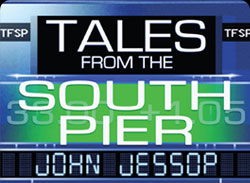Beyond the Beach is the title of a new documentary film, as yet unreleased, from a London-based production company called Dover Street Entertainment. I saw it at a private screening yesterday.
It is about the plight of refugees from wars and violence in Afghanistan, the Middle East and Africa and it is, as one might expect given the subject matter, both harrowing and moving.
Dover Street is looking for a distributor. If any of you, dear readers, are in the film distribution business, I urge you to make a point of watching it. The film has been shot with newsreel authenticity in refugee camps in the desert and on board rescue boats in the Mediterranean. It is beautifully crafted and pulls no punches. ‘Beautiful’ is not a word one can readily associate with such carnage as is seen on screen, but there is a beauty of sorts to be found in the matter-of-fact, selfless dedication of the medical staff depicted while performing frightful tasks, as well as in the stoic patience of those they are trying to save.
One Italian doctor is asked how one avoids danger in Afghanistan. “Don’t go to Afghanistan,” he replies with a shrug. He sounds flip, but he has seen much mayhem, too much blood, to indulge in reflection. He is not there to ponder the whys and the wherefores of the bombs and the artillery shelling, he is there just to put broken bodies back together. The latter leaves little time for the former.
Beyond the Beach is a story of two halves, the first told from the points of view of doctors and nurses in camps, the second of the crew of a rescue boat based in southern Italy. It is not the kind of film that will enthrall peak-time television viewers or cinema-goers looking for a little diversion from a humdrum working week on a Saturday night. The subject is too serious, the footage too raw, for either. The film should be seen not for its entertainment value, but for its honesty, its genuine concern for what is happening in the world to millions of dispossessed and helpless people. It should be seen as a reminder of what is being perpetrated by governments and religious authorities, often in our names.
The images, whether showing the bloodied, mangled victims of bomb attacks being carried into hospitals, or desperate sea-borne escapees being hauled onto the decks of rescue patrol boats, are graphic, tense and heart-wrenching. At the end, I was torn between weeping at the senseless cruelty and taking out my frustration by punching a hole in a wall.
I should declare an interest. I am socially acquainted with the proprietors of Dover Street, a British man named Graeme Scott and his business partner, an American lady named Kathy LoPrimo. I have known Kathy for some years. Graeme I met, through her, only recently. I have no financial interest in their business.
So, I can say with a clear conscience: try to find a way to see the film.


Be First to Comment